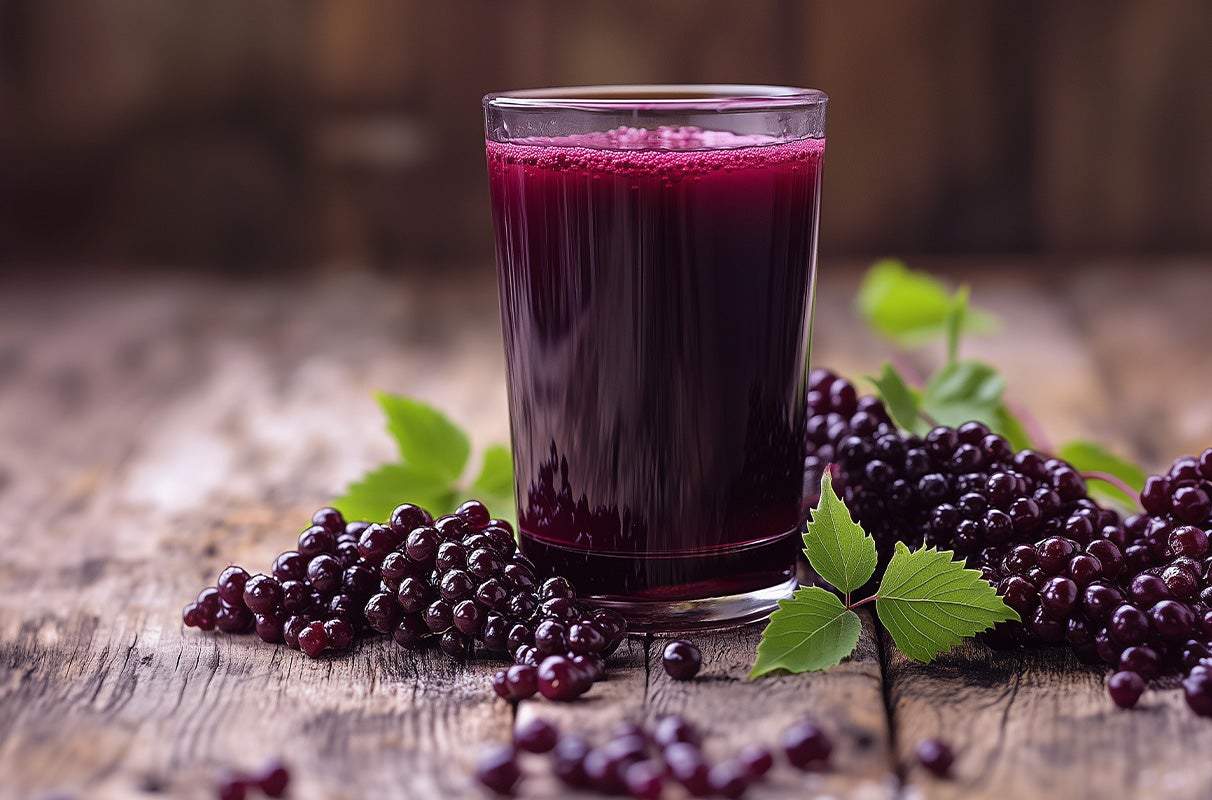Drinking elderberry juice daily can lead to positive gut bacteria changes and improve metabolism for weight management, a new clinical trial suggests.
The research, published in the journal Nutrients, found that drinking about 12 ounces of elderberry juice daily for a week could be a “potent tool” to alter the community of microbes living in the gut and improve the body’s glucose tolerance and fat oxidation.
The dark purple berry found on elder trees native to Europe is used widely as a medicinal plant and as a supplement for the immune system.
However, its other health benefits are poorly understood, said researchers from the Washington State University in the US.
“Elderberry is an underappreciated berry, commercially and nutritionally. We’re now starting to recognize its value for human health, and the results are very exciting,” study co-author Patrick Solverson said.

The small randomised, placebo-controlled trial assessed the effects of the berry on 18 overweight adults.
Participants consumed either elderberry juice or a similar-tasting and coloured placebo.
Researchers found the participants who consumed elderberry juice had significantly increased amounts of beneficial gut microbes, including bacteria groups such as firmicutes and actinobacteria.
The juice also appeared to decrease amounts of harmful bacteria such as bacteroidetes, scientists said.
Scientists found that the microbial changes from the elderberry intervention also improved metabolism.
Previous studies have shown that a healthy gut microbiome is key to optimal nutrient absorption.
The new study found that elderberry juice reduced participants’ blood glucose levels by about 24 per cent, indicating it can significantly improve the body’s ability to process sugars after carbohydrate consumption.
Participants who consumed the juice showed a 9 per cent decrease in insulin levels.
There was also significantly increased fat oxidation, or the breakdown of fatty acids, after a high carbohydrate meal and during exercise among those who drank the juice, researchers found.
This could be due to the fruit’s high concentration of anthocyanins, which are plant-based bioactive compounds with known anti-inflammatory, anti-diabetic, and antimicrobial effects, scientists say.
While other berries also contain anthocyanins, this is typically in lower concentrations.
For instance, a person would have to consume four cups of blackberries a day to achieve the same anthocyanin dose as contained in six ounces of elderberry juice.
“This study contributes to a growing body of evidence that elderberry, which has been used as a folk remedy for centuries, has numerous benefits for metabolic as well as prebiotic health,” Dr Solverson said.
Researchers hope to test the berry’s effects in larger, longer-duration trials, adequately investigating its benefits in both sexes and across different age groups.
“Our findings confirm the bioactivity of EBJ-sourced anthocyanins on outcomes related to gut health and obesity. Follow-up investigation is needed to confirm our findings and to test for longer durations,” scientists wrote.











